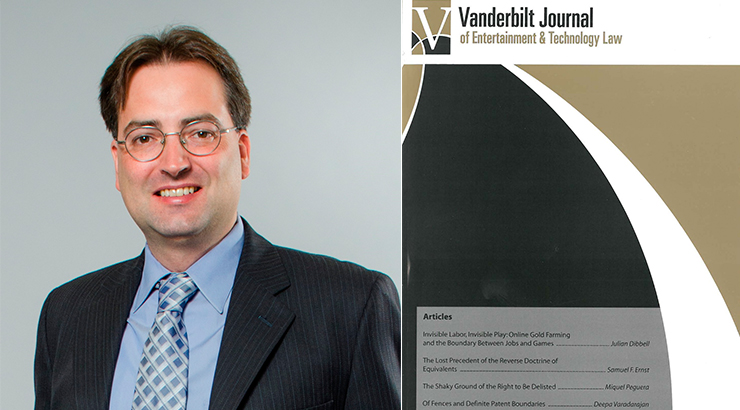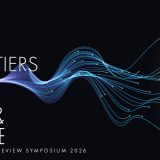
Fowler Law Professor Sam Ernst Publishes “The Lost Precedent of the Reverse Doctrine of Equivalents”
May 31, 2016
Chapman University Dale E. Fowler School of Law Professor Sam Ernst’s article “The Lost Precedent of the Reverse Doctrine of Equivalents” was recently published in Volume 18, Issue 3 of the Vanderbilt Journal of Entertainment & Technology Law.
From the abstract:
Proponents of legislative patent reform argue that the current patent system perversely impedes true innovation in the name of protecting a vast web of patented inventions, the majority of which are never even commercialized for the benefit of the public. Opponents of such legislation argue that comprehensive, prospective patent reform legislation would harm the incentive to innovate more than it would curb the vexatious practices of non-practicing entities. But while the “Innovation Act” wallows in Congress, there is a common law tool to protect innovation from the patent thicket lying right under our noses: the reverse doctrine of equivalents. Properly applied, this judge-made doctrine can be used to excuse infringement on a case-by-case basis if the court determines that the accused product is substantially superior to the patented invention, despite proof of literal infringement. Unfortunately, the reverse doctrine is disfavored by the Court of Appeals for the Federal Circuit and therefore rarely applied. It was not always so. This article is the first comprehensive study of published opinions applying the reverse doctrine of equivalents to excuse infringement between 1898, when the Supreme Court established the doctrine, and the 1982 creation of the Federal Circuit. This “lost precedent” reveals a flexible doctrine that takes into account the technological and commercial superiority of the accused product to any embodiment of the patented invention made by the patent-holder. An invigorated reverse doctrine of equivalents could therefore serve to protect true innovations from uncommercialized patents on a case-by-case basis, without the potential harm to the innovation incentive that prospective patent legislation might cause.
Professor Ernst teaches in the areas of intellectual property, contracts and civil litigation practice, with scholarship that focuses on patent law. Prior to joining the Fowler School of Law in 2013, Professor Ernst was a partner at the international law firm of Covington & Burling in San Francisco, practicing intellectual property, commercial and appellate litigation, while maintaining an active pro bono practice focusing on veterans disability recovery and homeless advocacy. In 2010, he was recognized by the Federal Circuit Bar Association for his work on behalf of veterans. In 2006 and 2008, he received a Certificate of Excellence from the Berkeley Food and Housing Project. Professor Ernst also taught pre-trial civil litigation at the UC Berkeley School of Law. He earned his JD magna cum laude from Georgetown University Law Center. He has a bachelor’s degree in Modern Literary Studies from UC Santa Cruz and a master’s degree in Comparative Literature from UCLA. Other recent articles include “Protecting the Boundaries: Unclaimed Consideration in the Patentee’s Social Contract,” published in the Tulane Journal of Technology and Intellectual Property; “Of Printer Cartridges and Patent Exhaustion: The En Banc Federal Circuit is Poised to Clarify Quanta” and “The Federal Circuit’s New ‘Authorized Aquirer’ Restriction on Patent Exhaustion,” both published on Patently-O, the nation’s leading patent blog; and “Patent Exhaustion for the Exhausted Defendant: Should Parties be Able to Contract Around Exhaustion in Settling Patent Litigation,” published in the Illinois Journal of Law, Technology & Policy.

